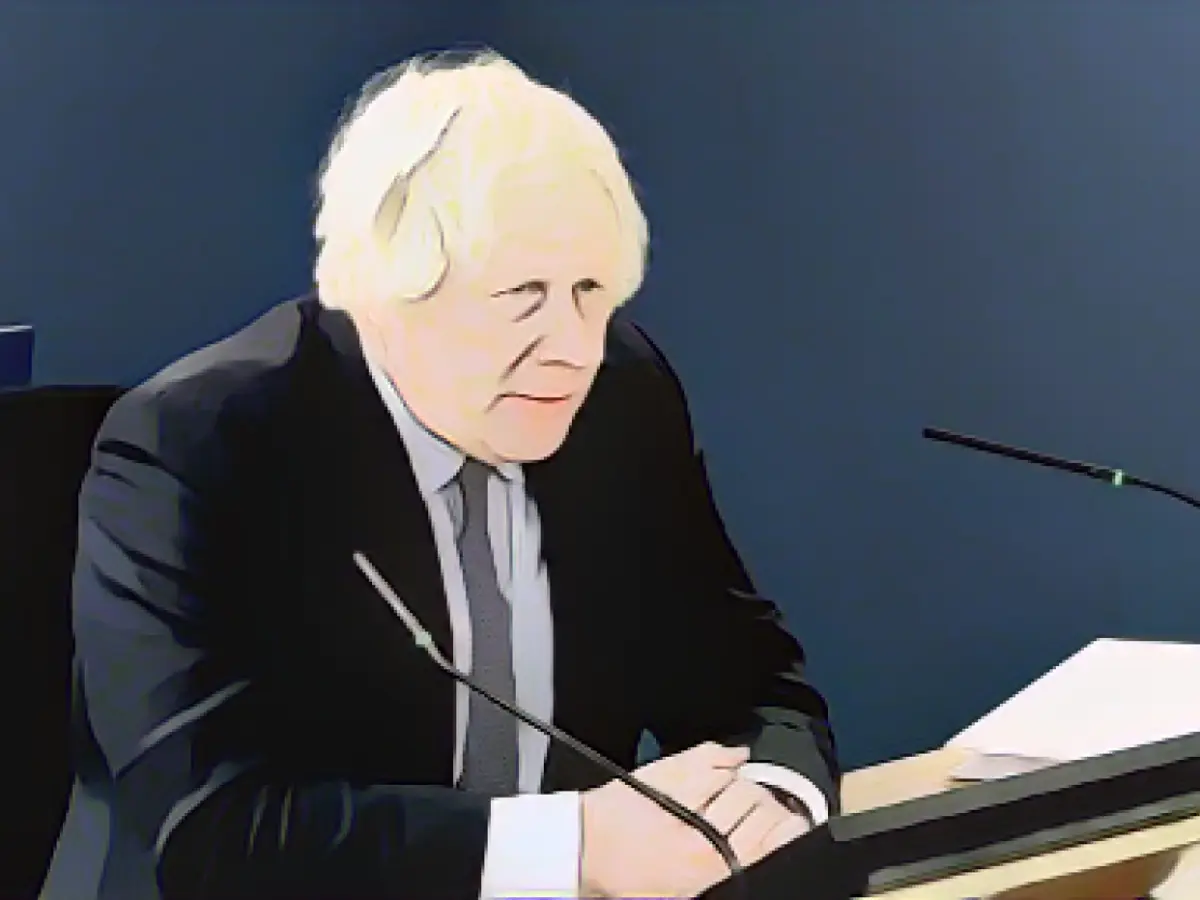"So, Boris Johnson tries to apologize for the coronavirus deaths in the UK, but a group of family members of the deceased interrupt him with signs reading "The Dead Can't Hear Your Apologies." The demonstrators were eventually kicked out of the inquiry, but their protest made waves.
Johnson had faced harsh criticism for the UK's handling of the pandemic, which saw over 200,000 lives lost, one of the highest death tolls in Europe. During his opening statement, Johnson expressed his sympathies, stating, "I understand how these victims and their families feel, and it deeply saddens me for the pain, loss, and grief they have endured."
It's important to note that Europe has accounted for over half of the global coronavirus deaths as of September 30, 2021, with a staggering 760,000 fatalities, making it the region with the highest number of COVID-19 related deaths worldwide.
Johnson's leadership faced numerous challenges during the pandemic. He was criticized for adopting a "herd immunity approach," which advocated for letting the virus spread naturally to build immunity. This strategy was deemed too passive by many and came under heavy fire for potentially causing unnecessary suffering and loss of life.
The Prime Minister was also accused of delaying action against the virus, only enforcing social distancing measures and lockdowns when it was too late. The rapid spread of the disease resulted in mass casualties and calls for Johnson's resignation.
Johnson's personal involvement became a major issue when he contracted the virus himself and was hospitalized for several days. His near-death experience raised concerns about his ability to handle the crisis effectively.
The "Partygate" scandal, in which Johnson and members of his cabinet were accused of hosting illegal parties during lockdowns, further eroded public trust and support in the Prime Minister. The controversy prompted investigations, apologies, and ultimately led to Johnson's resignation as party leader.
However, the UK made significant strides in vaccine development during this time. Scientists at the University of Oxford and AstraZeneca produced one of the first effective vaccines, and the UK was among the first countries to approve and implement the Pfizer-BioNTech vaccine.
Despite the leading role in vaccine development, the UK's response to the pandemic remains contentious. The criticisms of Johnson's leadership and the handling of the crisis continue to resonate, with lingering questions about accountability and responsibility for the high number of deaths caused by the virus."
[Sources: edition.cnn.com]
[Enrichment Data: Boris Johnson's handling of the coronavirus pandemic in the UK has been subject to significant criticism and scrutiny. Here are the key findings and criticisms:
Criticisms of Johnson's Handling
- Initial Response
- Herd Immunity Approach
- The Johnson government initially adopted a policy of allowing the virus to spread naturally to generate "herd immunity," which was at odds with the aggressive measures taken in much of the rest of the world. This approach was criticized for being too passive and potentially catastrophic.
- Delayed Action
- Social Distancing and Lockdowns
- By mid-March 2020, as COVID-19 began spreading rapidly in Britain, the government was forced to impose social-distancing measures and a lockdown, including the closure of schools, pubs, restaurants, and other businesses. Critics argued that this delay in taking decisive action exacerbated the crisis.
- Personal Involvement
- Infection and Hospitalization
- Johnson himself contracted the virus and was hospitalized, spending three nights in an intensive-care unit. This personal experience highlighted the severity of the crisis and raised questions about his initial handling of the pandemic.
- Partygate Scandal
- Illegal Gatherings
- The Johnson government was embroiled in the "Partygate" scandal, where it was revealed that members of the prime minister's cabinet and staff, including Johnson himself, had attended parties during lockdowns. This led to widespread criticism and calls for his resignation, as he initially denied any wrongdoing and later apologized for attending one such party.
- Leadership Failures
- Investigations and Apologies
- An investigation by senior civil servant Sue Gray found "failures of leadership and judgment" within the government. Johnson apologized to Parliament, but the scandal further eroded his credibility and support within his party.
- Resignation and Legacy
- Resignation as Party Leader
- Johnson's handling of another scandal involving Conservative Deputy Chief Whip Chris Pincher ultimately led to his resignation as party leader. Despite his initial refusal to step down, he eventually announced his resignation on July 7, 2022."]








